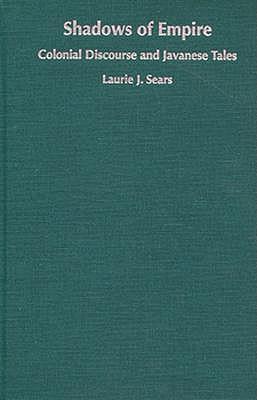Overview
Shadows of Empire explores Javanese shadow theater as a staging area for negotiations between colonial power and indigenous traditions. Charting the shifting boundaries between myth and history in Javanese Mahabharata and Ramayana tales, Laurie J. Sears reveals what happens when these stories move from village performances and palace manuscripts into colonial texts and nationalist journals and, most recently, comic books and novels. Historical, anthropological, and literary in its method and insight, this work offers a dramatic reassessment of both Javanese literary/theatrical production and Dutch scholarship on Southeast Asia. Though Javanese shadow theater (wayang) has existed for hundreds of years, our knowledge of its history, performance practice, and role in Javanese society only begins with Dutch documentation and interpretation in the nineteenth century. Analyzing the Mahabharata and Ramayana tales in relation to court poetry, Islamic faith, Dutch scholarship, and nationalist journals, Sears shows how the shadow theater as we know it today must be understood as a hybrid of Javanese and Dutch ideas and interests, inseparable from a particular colonial moment. In doing so, she contributes to a re–envisioning of European histories that acknowledges the influence of Asian, African, and New World cultures on European thought-and to a rewriting of colonial and postcolonial Javanese histories that questions the boundaries and content of history and story, myth and allegory, colonialism and culture.
Full Product Details
Author: Laurie J. Sears
Publisher: Duke University Press
Imprint: Duke University Press
Dimensions:
Width: 15.20cm
, Height: 3.30cm
, Length: 22.90cm
Weight: 0.862kg
ISBN: 9780822316855
ISBN 10: 0822316854
Pages: 277
Publication Date: 20 March 1996
Audience:
Professional and scholarly
,
Professional & Vocational
Format: Hardback
Publisher's Status: Active
Availability: Awaiting stock

The supplier is currently out of stock of this item. It will be ordered for you and placed on backorder. Once it does come back in stock, we will ship it out for you.
Reviews
OShadows of Empire casts new light on the history of Java and analyzes historiographical method in the light of theoretical developments in the study of colonial history. Its emphasis on shadow theatre as text, as performance, and as oral tradition makes an important new contribution.ONJean Gelman Taylor, University of New South Wales OA challenging book. Laurie Sears provides a wide range of provocative insights into Javanese and colonial culture and a radical rethinking about the wayang as a major area for the negotiation of power relationships between the Javanese and the Dutch.ONAmin Sweeney, University of California, Berkeley
Shadows of Empire casts new light on the history of Java and analyzes historiographical method in the light of theoretical developments in the study of colonial history. Its emphasis on shadow theatre as text, as performance, and as oral tradition makes an important new contribution. -Jean Gelman Taylor, University of New South Wales A challenging book. Laurie Sears provides a wide range of provocative insights into Javanese and colonial culture and a radical rethinking about the wayang as a major area for the negotiation of power relationships between the Javanese and the Dutch. -Amin Sweeney, University of California, Berkeley
Author Information
Laurie J. Sears is Associate Professor of History at the University of Washington. She is editor of Fantasizing the Feminine in Indonesia, also published by Duke University Press.




